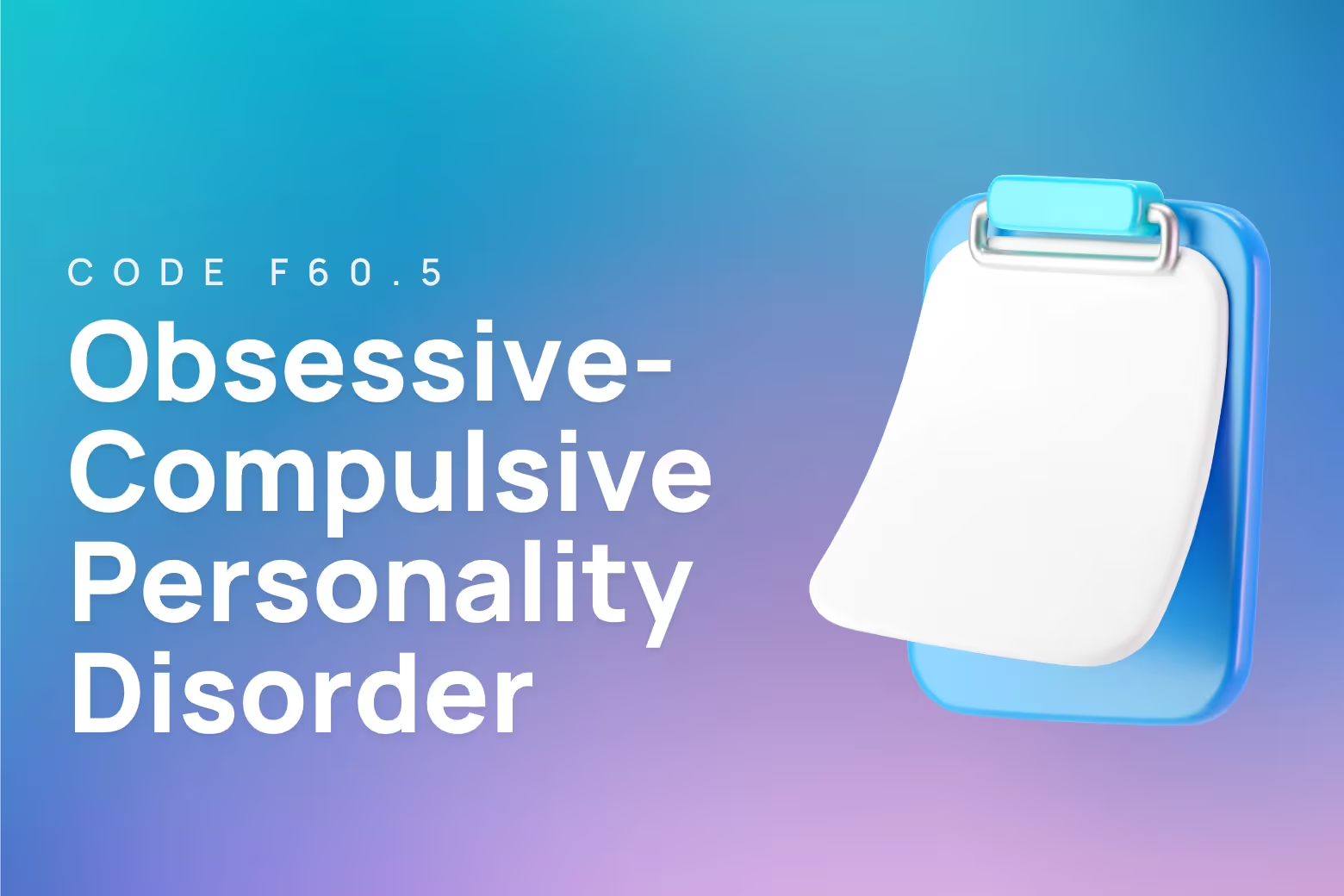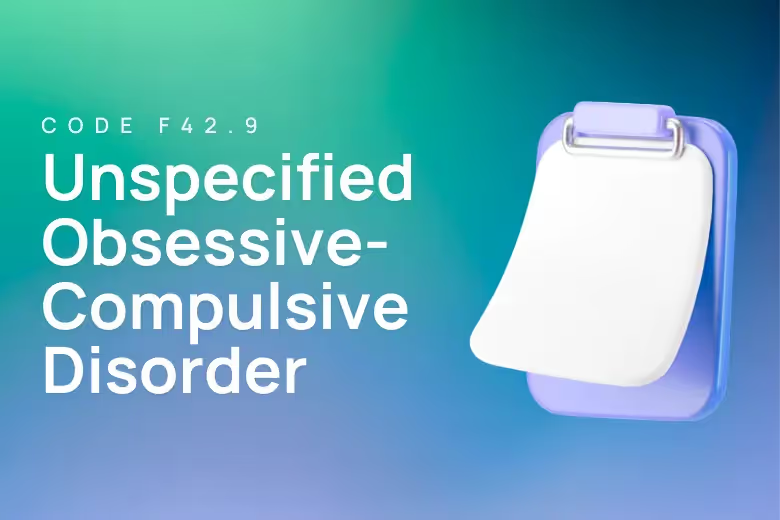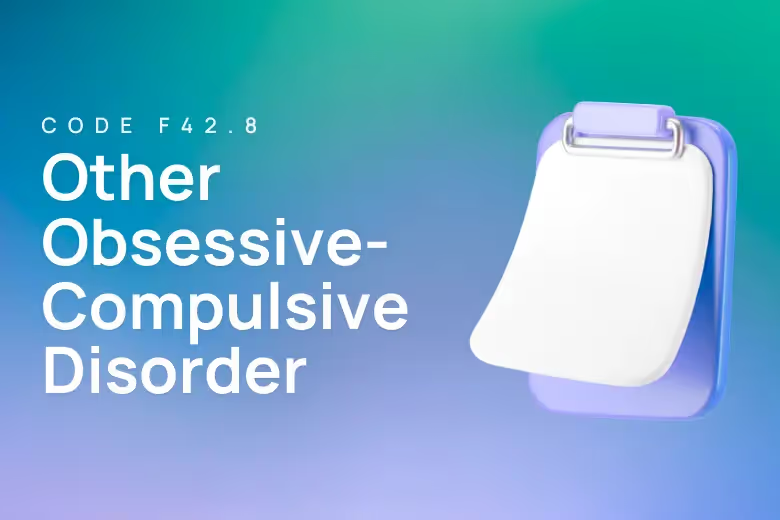ICD-10 code for obsessive-compulsive personality disorder

Living with Obsessive-Compulsive Personality Disorder often means navigating a world where perfection feels like the only acceptable standard. Individuals may find themselves caught in an endless pursuit of order, control, and flawless execution, often at the cost of life's spontaneity and joy. Understanding this condition marks the first step toward finding balance and creating positive change.
The ICD-10 diagnostic code for Obsessive-Compulsive Personality Disorder is F60.5. This code appears within the F60-F69 class of adult personality disorders, alongside other conditions like borderline personality disorder and narcissistic personality disorder.
According to diagnostic criteria, OCPD manifests as a persistent pattern of preoccupation with orderliness, perfectionism, and control at the expense of flexibility and efficiency. Studies indicate a prevalence rate of approximately 7.8% in the general population, making it one of the most common personality disorders.
When to use F60.5 for OCPD
The F60.5 code should be used when an individual presents with a pervasive pattern of excessive perfectionism, preoccupation with details and rules, and an overwhelming need for control that significantly impacts their daily functioning and relationships. However, careful diagnostic consideration is essential to differentiate OCPD from related conditions.
OCPD vs. OCD
While their names sound similar, OCPD and Obsessive-Compulsive Disorder (OCD) are distinct conditions. People with OCD experience unwanted, intrusive thoughts and compulsive behaviors they recognize as unreasonable. In contrast, individuals with OCPD view their perfectionism and rigid standards as correct and desirable, often lacking insight into how these traits affect themselves and others.
OCPD vs. autism spectrum disorder
OCPD and autism can present with similar traits, such as preference for routine and attention to detail. However, in OCPD, these behaviors stem from a need for control and perfectionism, while in autism, they relate to neurological differences in processing and sensory experiences. Recent research has shown significant overlap between these conditions, with some individuals meeting criteria for both diagnoses.
ICD-10 codes for other personality disorders
- F60.0 Paranoid personality disorder
- F60.1 Schizoid personality disorder
- F60.2 Antisocial personality disorder
- F60.3 Borderline personality disorder
- F60.4 Histrionic personality disorder
- F60.6 Avoidant personality disorder
Interventions and CPT codes for OCPD
Treatment approaches for OCPD focus on helping individuals develop more flexibility in their thinking and behavior while maintaining their valuable attention to detail and organization.
90834: Individual Psychotherapy
Individual psychotherapy, particularly cognitive-behavioral therapy (CBT), serves as a primary treatment for OCPD. The CPT code 90834 covers 45-minute psychotherapy sessions.
CBT helps individuals recognize rigid thinking patterns and develop more flexible approaches to daily life. Treatment focuses on challenging perfectionist standards, developing tolerance for imperfection, and improving interpersonal relationships.
90837: Extended Individual Psychotherapy
For more intensive therapeutic work, extended sessions may be beneficial. CPT code 90837 covers 60-minute individual psychotherapy sessions.
Longer sessions allow for deeper exploration of ingrained patterns and beliefs, particularly useful when addressing complex OCPD traits that affect multiple life areas. This format provides time to practice new coping skills and process emotional responses to change. It can also allow opportunity to explore medications such as SSRIs, which can help individuals with OCPD become less focused on minor details and reduce rigid thinking patterns.
Supporting Clients with OCPD
Hope exists for individuals living with OCPD through evidence-based treatments and supportive therapeutic relationships. Mental health professionals play a crucial role in helping clients recognize how perfectionism and control impact their lives while preserving the positive aspects of their detail-oriented nature. The key lies in maintaining accurate, thorough clinical documentation that tracks progress and ensures treatment alignment with therapeutic goals.
Upheal is an AI-powered clinical documentation platform that helps providers maintain detailed, compliant records while reducing administrative burden. This allows more time for meaningful client interaction and therapeutic work.












